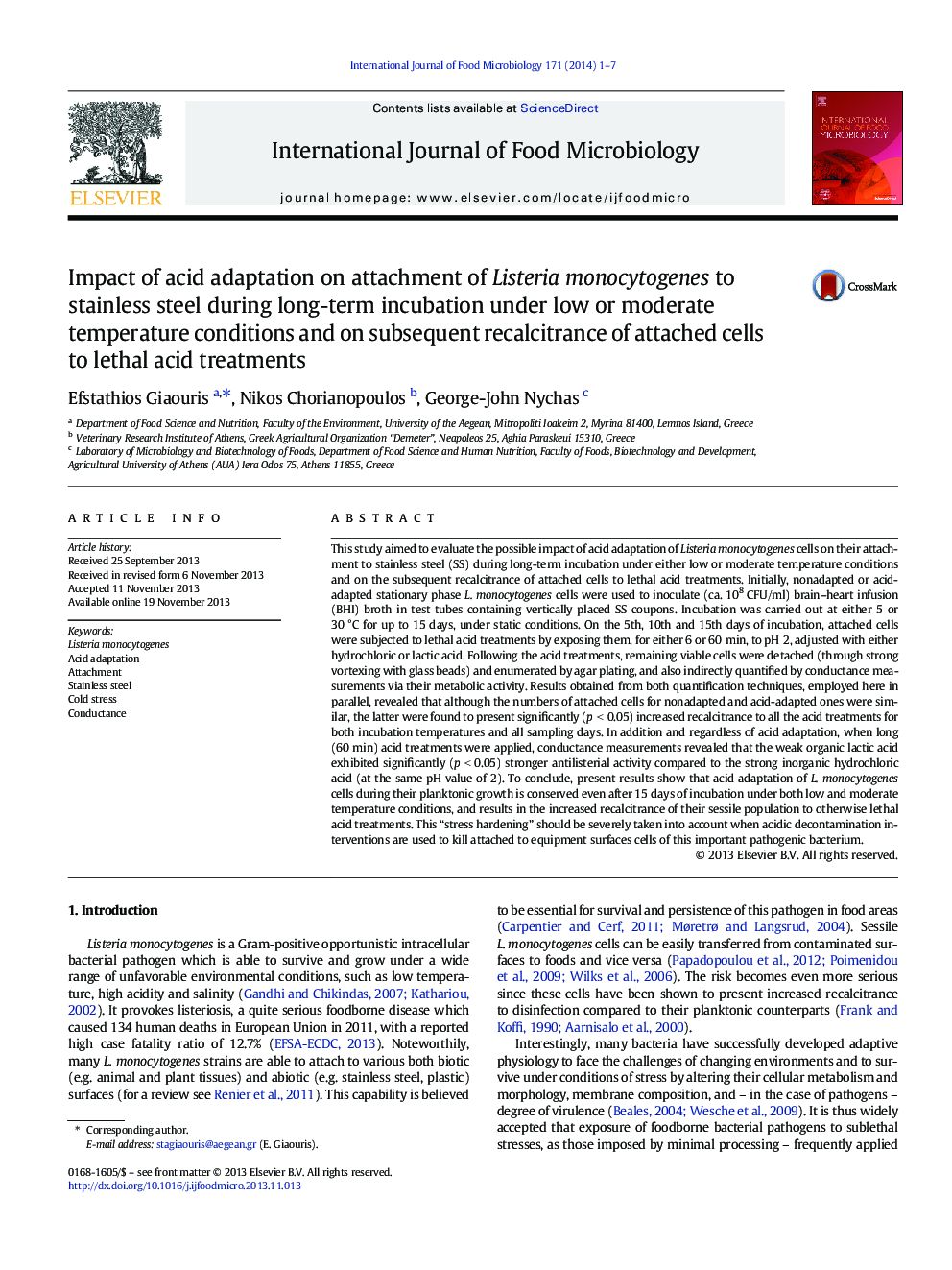| کد مقاله | کد نشریه | سال انتشار | مقاله انگلیسی | نسخه تمام متن |
|---|---|---|---|---|
| 6290057 | 1616611 | 2014 | 7 صفحه PDF | دانلود رایگان |

- Acid-adapted sessile L. monocytogenes cells present increased acid resistance.
- Bacterial acid adaptation once obtained may be conserved for long periods.
- Bacterial acid adaptation should be considered when acid decontamination is applied.
- Lactic acid is stronger against L. monocytogenes compared to hydrochloric.
This study aimed to evaluate the possible impact of acid adaptation of Listeria monocytogenes cells on their attachment to stainless steel (SS) during long-term incubation under either low or moderate temperature conditions and on the subsequent recalcitrance of attached cells to lethal acid treatments. Initially, nonadapted or acid-adapted stationary phase L. monocytogenes cells were used to inoculate (ca. 108 CFU/ml) brain-heart infusion (BHI) broth in test tubes containing vertically placed SS coupons. Incubation was carried out at either 5 or 30 °C for up to 15 days, under static conditions. On the 5th, 10th and 15th days of incubation, attached cells were subjected to lethal acid treatments by exposing them, for either 6 or 60 min, to pH 2, adjusted with either hydrochloric or lactic acid. Following the acid treatments, remaining viable cells were detached (through strong vortexing with glass beads) and enumerated by agar plating, and also indirectly quantified by conductance measurements via their metabolic activity. Results obtained from both quantification techniques, employed here in parallel, revealed that although the numbers of attached cells for nonadapted and acid-adapted ones were similar, the latter were found to present significantly (p < 0.05) increased recalcitrance to all the acid treatments for both incubation temperatures and all sampling days. In addition and regardless of acid adaptation, when long (60 min) acid treatments were applied, conductance measurements revealed that the weak organic lactic acid exhibited significantly (p < 0.05) stronger antilisterial activity compared to the strong inorganic hydrochloric acid (at the same pH value of 2). To conclude, present results show that acid adaptation of L. monocytogenes cells during their planktonic growth is conserved even after 15 days of incubation under both low and moderate temperature conditions, and results in the increased recalcitrance of their sessile population to otherwise lethal acid treatments. This “stress hardening” should be severely taken into account when acidic decontamination interventions are used to kill attached to equipment surfaces cells of this important pathogenic bacterium.
Journal: International Journal of Food Microbiology - Volume 171, 3 February 2014, Pages 1-7